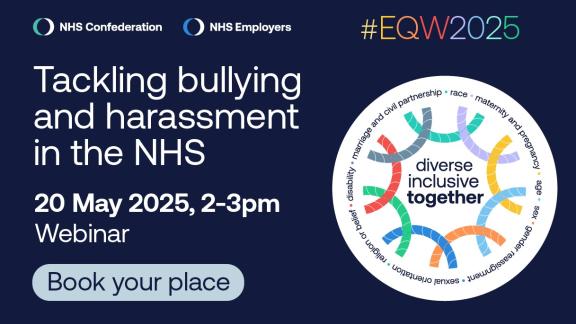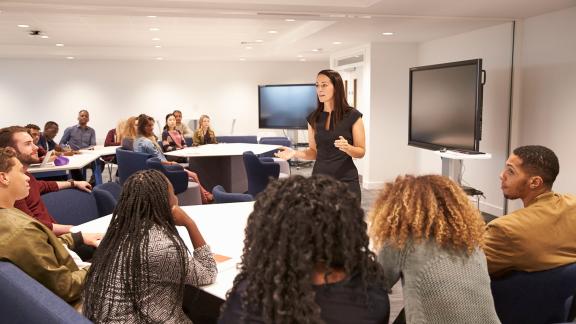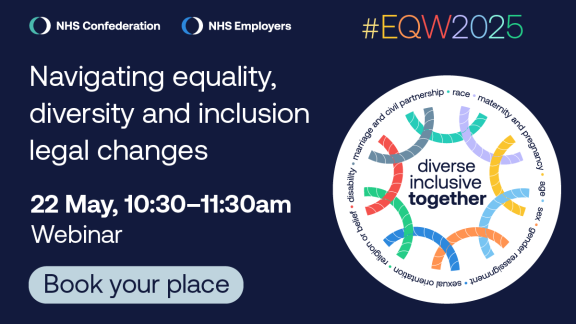The importance of place and safe spaces

LGBT History Month is crucial because it lets us to look back to where we've been; explore whether there are any lessons from the past that can help us to develop a better understanding of the present; and see whether there is any learning we can bring to bear on today's challenges.
Reflecting on LGBTQ+ places
When I reflect on my past, I'm very struck by how important queer places were for me. Places such as the Fallen Angel, the Bell and the Scala Cinema enabled collectivism and activism as well as a sense of community and belonging. These were the beginnings of places where all genders came together and places like the tea dance at Stallions were also places where all ages came together.
All of these places have now gone. The march of commercialisation and gentrification has led to the disappearance of many queer venues. Since 2007, 58% of queer venues have closed. In 2006 there were 125 queer venues in London but by 2017 there were 53 – we can only speculate about the situation now[1]. It's possible that new places will emerge where different generations can come together. There may be the equivalents of First Out Cafe or the Stallions Tea Dance providing different ways for queer people to come together.
It’s incredibly important that an initiative like the Health and Care LGBTQ+ Leaders Network can bridge that gap and provide safe, inclusive spaces for support, advocacy and allyship.
This is important given the rise in hate crime. Hate crimes against people based on sexual orientation have risen in England and Wales from 8,569 in 2016/17 to 24,102 in 2022/23. For hate crimes against transgender people, this figure has risen from 2,253 in 2016/17 to 4,732 in the same period - and these are just the crimes reported to the Police[2].
The experiences of LGBTQ+ healthcare staff
It is alarming how many staff now talk about feeling unsafe and how many people feel that things are going backwards.
LGBTQ+ healthcare staff experience significant inequity, including higher incidences of bullying and harassment from both patients and staff. This significantly rises for trans and non-binary healthcare staff.
I recently took part in a round table organised by the 2SLGBTQ+ Collaborative of the Global Leadership Exchange[3] and it was clear that developing new strategies to address homophobia and transphobia for staff working in mental health, disability and substance use is a global issue.
The NHS Staff Survey tells us that LGBTQ+ healthcare staff experience significant inequity, including higher incidences of bullying and harassment from both patients and staff. This significantly rises for trans and non-binary healthcare staff, who are more likely to experience abuse from patients and their relatives. We know this translates into worse staff experience for LGBTQ+ staff. It is heartening though, to see that more than 7 out of 10 staff view their organisation as inclusive, showing that some progress is being made.
A place for connection and support
So, it’s incredibly important that an initiative like the Health and Care LGBTQ+ Leaders Network can bridge that gap and provide safe, inclusive spaces for support, advocacy and allyship.
Our network is a place where people of different identities can come together quickly to tackle an emerging challenge, or take time in person to find common ground.
Our aim is to ensure that the LGBTQ+ community receive the best care, and work in an inclusive environment where everyone is able to thrive. Our LGBTQ+ inclusion framework is just one example of a number of resources that we have developed to enable health and care leaders to create inclusive environments for LGBTQ+ staff and service users.
Our network is a place where people of different identities can come together quickly to tackle an emerging challenge, or take time in person to find common ground – as they did at our celebration event earlier this month. Whether we are going to have to fight again for LGBT rights, or if our success arouses hostility from reactionary forces, we have to work collectively. That same collectivism that gave us the NHS can also shape LGBTQ resistance.
Peter Molyneux is the outgoing chair of the NHS Confederation’s Health and Care LGBTQ+ Leaders Network. He is Chair of Sussex Partnership NHS Foundation Trust and the England Liaison for the Global Leadership Exchange for Mental Health, Disability and Substance Use.
References:
[1] Campkin B and Marshall L (2017) LGBTQ+ Cultural Infrastructure in London. UCL Urban Laboratory: London. https://www.ucl.ac.uk/urban-lab
[2] Home Office Hate Crime, England and Wales, 2022 to 2023. November 2023. https://www.gov.uk/government/statistics/hate-crime-england-and-wales-2022-to-2023.
[3] The Global Leadership Exchange connects leaders in mental health, disability and substance and creates a space for sharing ideas, knowledge, and best practice to help spread innovation and change lives.
Join our Health and Care LGBTQ+ Leaders Network. You can follow the network on Twitter @NHSC_LGBTQ.



